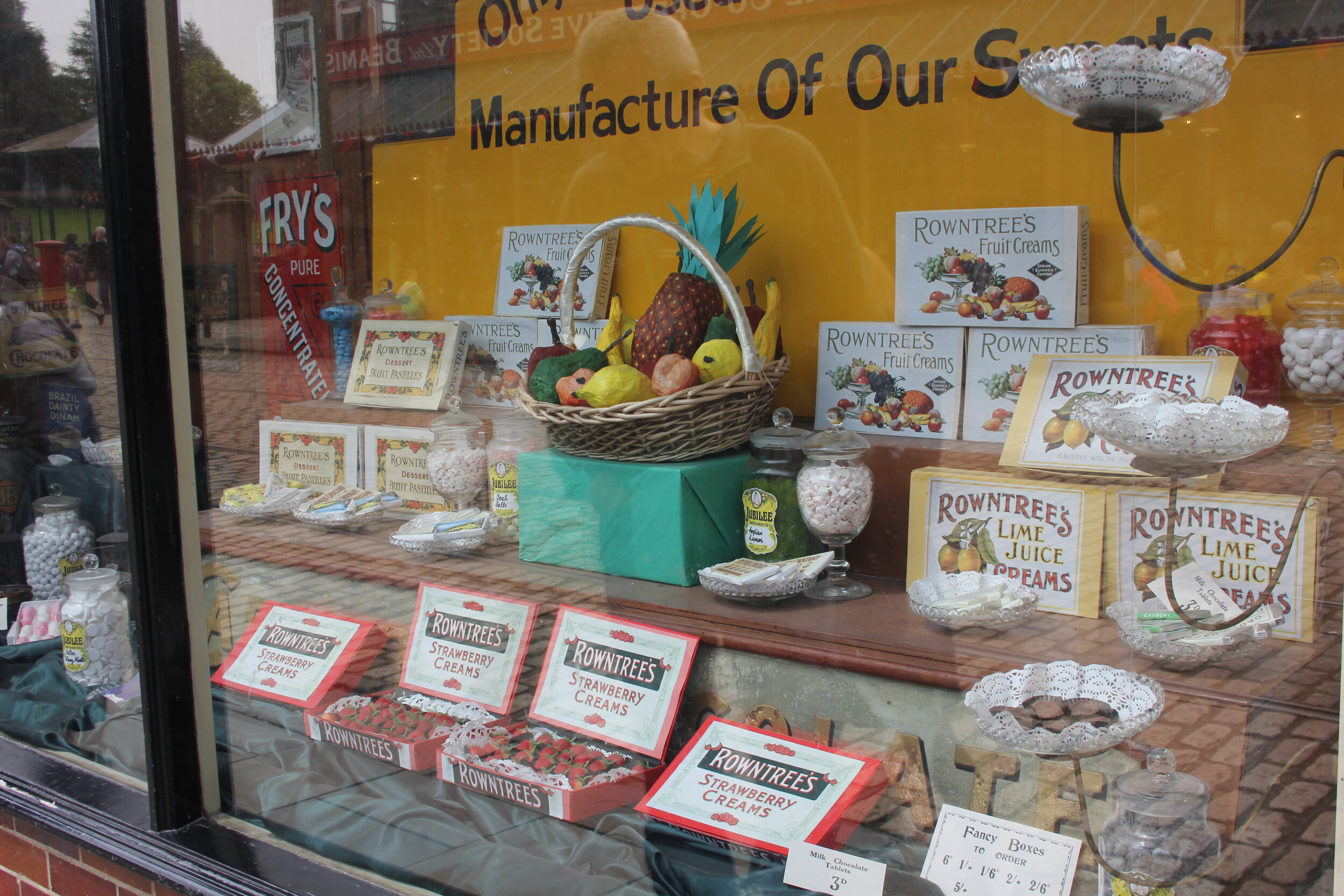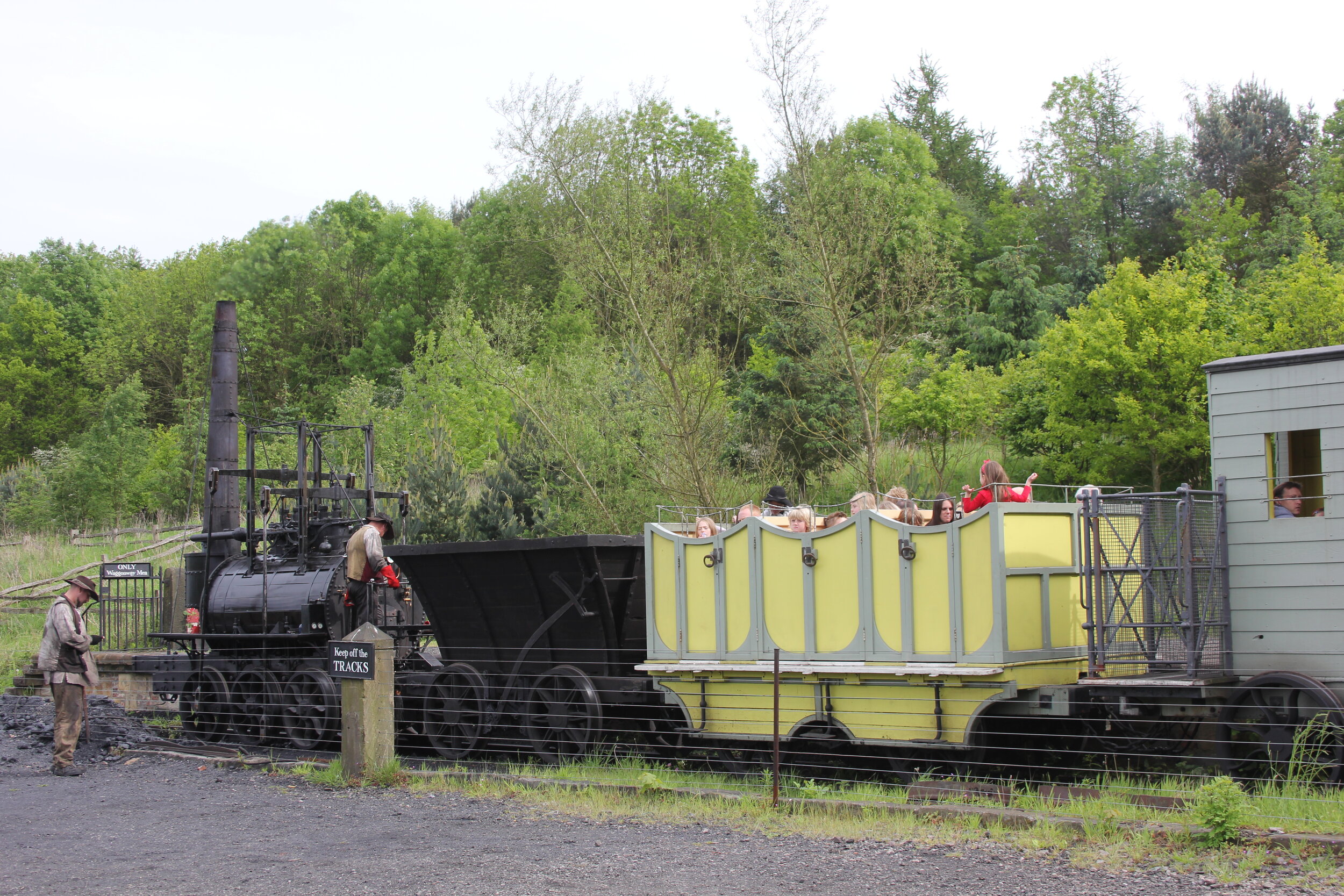Head north to Beamish for an industrial age experience never to be forgotten.
/Take a time machine trip back to the Georgian, Victorian and Edwardian times as well as World War Two, at Beamish,”the living museum of the North”.
Pay for a day but go for a year.
With so much to do, one day’s entry fee translates into returning as many times as you want for an entire year. Enthusiastic and knowledgable staff, in period costume appropriate to their venue, enhance your experience by demonstrating what life was like. Many visitors leave Beamish with the view that they needed four days, not one to get the complete experience and vow to take advantage of the free return ticket before the year is out. A full day can involve rides on trams, trains and buses, visits to sweet shops, a bank, a grocer’s store, a pit village with miners cottages a school and a 1940’s farm to name but a few! For an extra fee, adults can enjoy extra experiences such as driving the colliery railway locomotive and blacksmithing as well as experiencing war time cookery in the 1940’s Farm Kitchen. Beamish’s “Period Food Team” state that they will “teach you everything you need to know to make a selection of delicious, traditional sweets and treats including cinder toffee, coconut delights, rum truffles and sweetmeats.”
Loads of different rides can be experienced as many times as you like and all in the one entry fee
Experience shopping in bygone days in authentic shops
Beamish is not simply about looking at historically accurate and decorative shop windows, you can go in and actually buy real sweets with exchanged “old money”. Look at the array of unpackaged sweets that are on sale. Anyone over sixty will remember such treats as “humbugs” and waiting as the jar is brought down from the shelf and the sweets weighed out into a paper bag. You an also see how these sweets were made.
In the Co-op store you can witness life before supermarkets.
Far from filling your trolley, everything would be ordered verbally from the grocer who would reach up and put each item on the counter. If you look at the drawers behind the till, you can see that people would have purchased loose herbs and spices that would be scooped into a bag and weighed. Some people suggest that this method should return to avoid the vast amounts of packaging that we use and throw away today. You can also see that this was before frozen and chilled food, as well as foreign fruit such as peaches, nectarines etc. Ordinary people would open a can of fruit for their dessert.
You are taken back to a time before washing machines.The clothes were put in the metal tub along with soap and then the wooden pole (washing dolly) is twisted around by hand to wash away the dirt, a very exhausting and lengthy job. The wet clothes are then rinsed to get rid of all the soap suds before being squashed between two wooden rollers. The rollers (mangle) would be turned around to squeeze the water out of the clothes by turning the large wheel on the right hand side. You can see why they referred to washing days because the process for the whole family’s clothes would take a very exhausting, whole day!
Away from the shops you can visit a Pit Village, the reconstructed terrace of miners’ cottages and Rowley railway station.
Below you can see how their houses, or at least the main room, would be kept warm by an Aga type device that was a heater, a cooker and a warmer of the flat iron used to iron clothes. It would heat water to go in a tin bath which the whole family would use one after the other.
Going to the toilet was a very different experience.
Essential information.
Under the government’s COVID-19 national lockdown, the museum is currently closed.
We plan to reopen our outdoor areas only from 12th April 2021, under Step 2 of the government’s COVID-19 roadmap. (This is subject to the government timeline for the easing of lockdown restrictions.) ALL visitors will need to pre-book an entry timeslot online in advance of their visit, including Friends of Beamish members and Beamish Unlimited Pass holders.
Website
http://www.beamish.org.uk
Getting there;
By road;
From the North and South – Follow the A1M to Junction 63 (Chester-le-Street exit), then the A693 towards Stanley for 4 miles, following the signs.
From the West – Take the A68 to Castleside, near Consett, and follow the Beamish Museum signs along the A692 and A693 via Stanley.
Sat-nav users – our postcode is DH9 0RG.
By bus;
Waggonway service 28/28A offers regular buses from Newcastle City Centre, Gateshead, Birtley, Ouston and Chester-le-Street. Buses run every 30 minutes on Monday to Saturday daytimes and hourly in the evening and on Sundays. Connections with other bus, train or metro services can be made in Newcastle, Gateshead and Chester-le-Street.
Coast & Country service 8 runs every 30 minutes Monday to Saturday from Sunderland Interchange, via Washington, Chester-le-Street and Stanley.
The Go North East bus app
Buy tickets, see where your bus on a live map, find your nearest bus stop and plan your journey. The Go North East bus app is essential for anyone travelling in and around the region. Available on Apple and Android devices. http://smarturl.it/gne
Travel to Beamish Museum on any Go North East bus and get 25% discount on a standard individual admission charge.
By rail;
The closest train station to Beamish Museum is Chester-le- Street, TransPennine Express run regular direct train services to Chester-Le-Street from Newcastle, Durham and Darlington. Save over 50% on train ticketswhen you book in advance with tpexpress.co.uk.
Once you arrive at Chester-le-Street there are regular bus services from the town centre to Beamish Museum which takes approx. 15 – 20 minutes.
Tickets
For current ticket information and booking go to the Beamish website. http://www.beamish.org.uk
























A day’s wandering around this area of Coventry will present you with hundreds of years of history to discover. You will be able to visit the ruins of the 14th and 15th century church of St Michael that became a cathedral in 1918 as well as the new one next door.. About 160 metres away or a two minute walk, is Holy Trinity church with its amazing Medieval “Doom Painting” which some people believe is the best one in Britain. One minute away, is the wonderful and free Herbert Art Gallery and Museum.